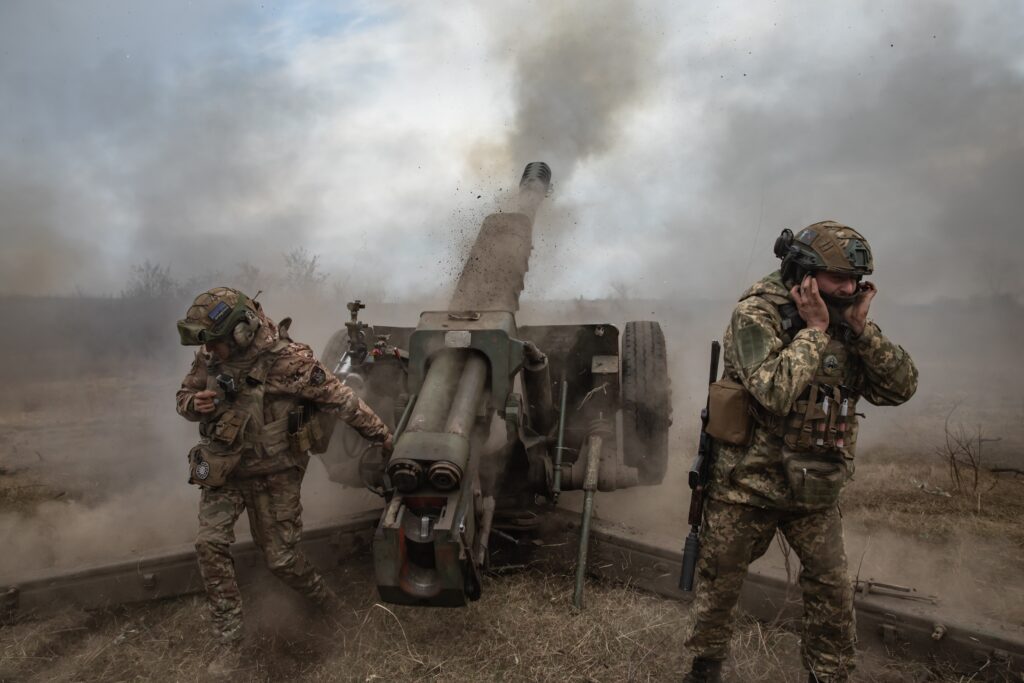Ukrainian soldiers fighting in Russia’s Kursk region express despair and confusion over their mission. Many fear failure.
Harsh Realities on the Frontline
Troops report worsening conditions, sleepless nights, and relentless Russian bombardment, including deadly 3,000kg glide bombs. Soldiers describe constant fatigue, lack of rotation, and reinforcements arriving unprepared from other fronts.
Pavlo, a soldier still in Kursk, wrote on November 26: “The situation worsens daily. Our retreat continues, and it’s only a matter of time.”
Soldiers often vent about orders, leadership, and equipment shortages. Yet, their bleak messages suggest low morale beyond typical complaints. Some question whether their initial objective—distracting Russian forces from Ukraine’s eastern front—has succeeded.
The current orders are clear: hold territory until January 20, when a new U.S. president could bring new policies. Pavlo stated, “We’re told to hold on until Trump’s inauguration for possible negotiations. But no one knows what comes next.”
President Zelensky acknowledged this timeline, noting both sides seem to anticipate the U.S. leadership transition. “Putin wants to push us out by January 20,” he said, adding that Russia is not fully in control of the situation.
A Battle with Limited Gains
The U.S., UK, and France have authorized Ukraine to use long-range weapons inside Russia. Despite this, frontline troops see little impact. “We don’t sit in cold trenches praying for missiles,” Pavlo said. “We fight here and now, while missiles target places far away.”
Atacms and Storm Shadow missiles have damaged Russian command posts and supply depots. However, these achievements feel distant to soldiers enduring daily hardships. “In bunkers, we talk about family and rest, not missiles,” Myroslav shared.
Russia’s slow advances in eastern Ukraine underscore the need to hold Kursk. Ukraine lost 40% of the territory it seized in Kursk since August, while Russia reclaimed 500 square kilometers in the east during October alone.
Still, some soldiers feel misplaced. “Our place is on Ukraine’s eastern front, not in these forests,” Pavlo lamented. “We don’t need Kursk. We’ve lost too many comrades here.”
Rumors of North Korean troops bolstering Russian forces in Kursk remain unconfirmed. Ukrainian soldiers have yet to encounter them despite reports and orders to capture one for intelligence. “It’s hard to find a Korean in a dark forest,” Pavlo quipped.
Parallels with Past Campaigns
Veterans of Ukraine’s failed Krynky bridgehead operation see similarities in Kursk. That mission cost 1,000 soldiers and achieved little. Myroslav, who served in Krynky and now fights in Kursk, criticized both efforts. “Good idea, bad execution. Media effect, no military result.”
Military analysts argue Kursk remains strategically vital. Serhiy Kuzan from the Ukrainian Security and Cooperation Centre said, “Holding Kursk forces Russia to divert resources from other fronts. The longer we hold, the better.”
Ukrainian commanders insist the Kursk campaign still yields political and military rewards. A senior official said, “Putin suffers heavy losses here. This annoys him greatly.”
For now, soldiers endure the grim realities. As one commander put it, “We’ll hold Kursk as long as it’s militarily feasible.”


